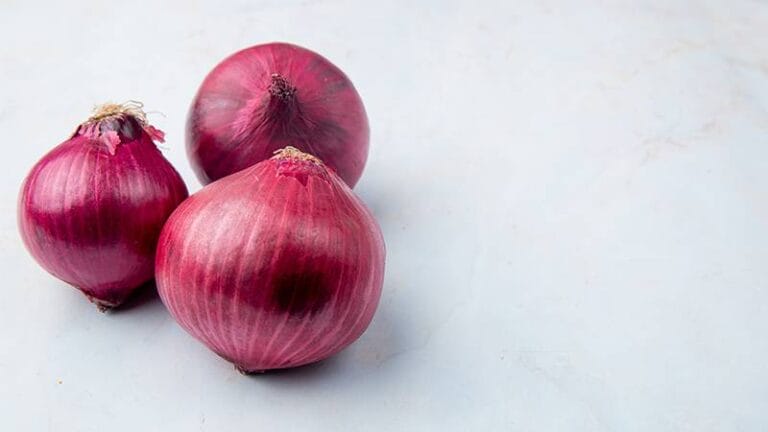Do you know that the humble onion can be a valuable addition to your compost bin? Let’s finally settle the debate and dive into the fascinating world of composting onions.
With proper preparation and balance, onion compost not only helps you achieve a sustainable garden, but also enhances the quality of your soil, resulting in increased yields and healthier plants.
Can You Compost Onions?
The answer is yes: onions can be successfully composted in compost bins.
However, composting onions requires careful attention to their acidity, strong smell, and potential to sprout. By properly preparing and balancing these factors, you can transform onion scraps and onion peels into a prized plant food that benefits your garden.
It’s crucial to start composting onions by remembering that large chunks of onions, including onion peelings, can negatively impact the compost pile and take more time to decompose.
Also, adding an excessive amount of onions to a compost pile with other vegetable scraps can impede the activity of beneficial bacteria and other organisms, thus extending the composting process.
To ensure successful composting, follow the methods discussed in the next sections.
The Compostability of Onions
Onions are a green composting material, as they contain a high amount of nitrogen. However, successfully composting onions can be challenging due to their intense flavors and odors. To achieve effective composting, it’s essential to maintain a balanced proportion of carbon and nitrogen-rich materials.
By addressing the challenges of onions’ acidity and sprouting tendencies, you can create a thriving compost pile for your garden.
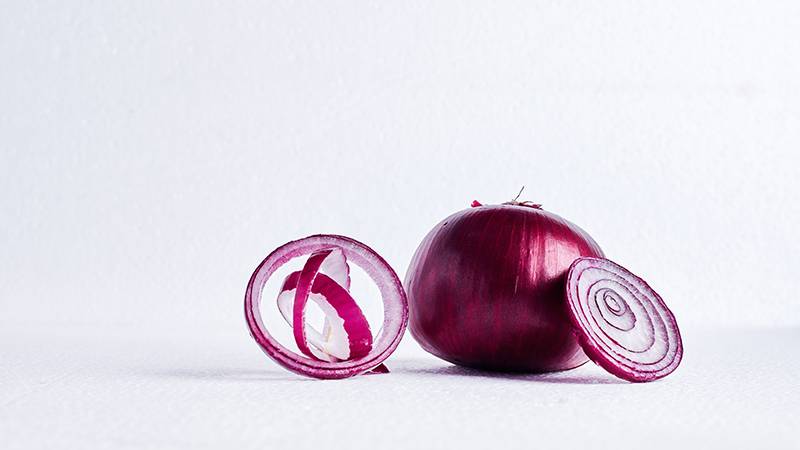
Acidity and Sprouting Concerns
Onions’ acidity can inhibit bacteria and harm worms in a compost heap, while their tendency to sprout can be problematic. To manage these issues, ensure proper preparation, such as cutting onions into small pieces and combining them with other food waste. Adding materials like chalk or crushed eggshells can counteract the acidifying effect of onions.
To prevent sprouting, on the other hand, onions should also be prepared correctly prior to being added to the compost. This also means chopping them into smaller pieces. By addressing these concerns, you can successfully compost onions without negatively impacting the overall composting process.
Nitrogen Content and Balancing Greens and Browns
The nitrogen content in compost is essential for the composting process. It is suggested to maintain a carbon/nitrogen ratio of 25-30 parts carbon to 1 part nitrogen, which facilitates the decomposition of organic matter and the creation of nutrient-rich compost. Balancing “green” materials that decompose quickly, like onions, with “brown” materials that take longer to break down is key to successful composting.
To adjust the ratio of greens to browns in a compost bin, you can add more brown material if the ratio is too high, or more green material if the ratio is too low. This balance helps create a healthy compost pile that decomposes efficiently and provides valuable nutrients to your garden.
Methods for Composting Onions Successfully
Composting onions successfully involves three main steps: chopping and preparing onions, combining onion scraps with other food waste, and adding brown material for aeration and water retention. Each of these steps is crucial to ensure that onions decompose effectively and contribute valuable nutrients to your compost pile.
Chopping and Preparing Onions
Chopping onions into smaller pieces is essential for successful composting. Smaller pieces prevent sprouting and speed up the decomposition process. Cutting onion skins into smaller pieces also expedites the composting process.
If onions are not chopped before being added to the compost pile, they may attempt to reproduce and sprout. Proper preparation is key to ensuring that onions contribute effectively to the compost pile without causing any issues.
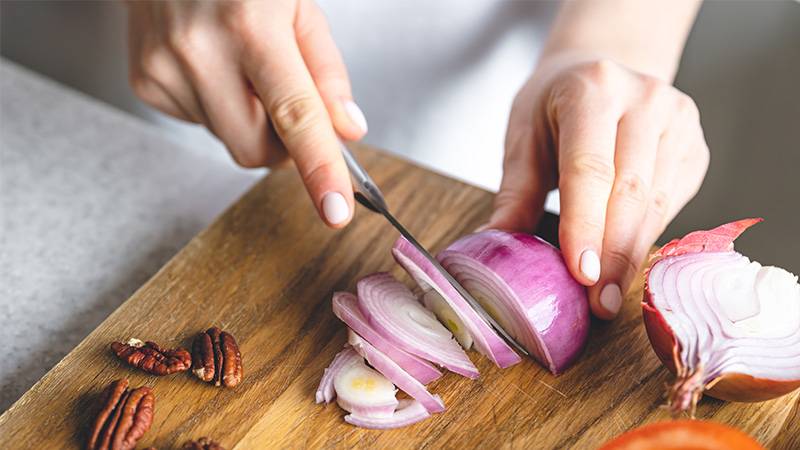
Combining Onion Scraps with Other Food Waste
Mixing onion scraps with other food waste helps balance acidity and reduce odor. Including newspaper or cardboard and burying them under organic waste may help decrease the smell of onions in the organic compost pile.
Combining onions with other food waste also makes them more palatable for worms in a worm composting system.
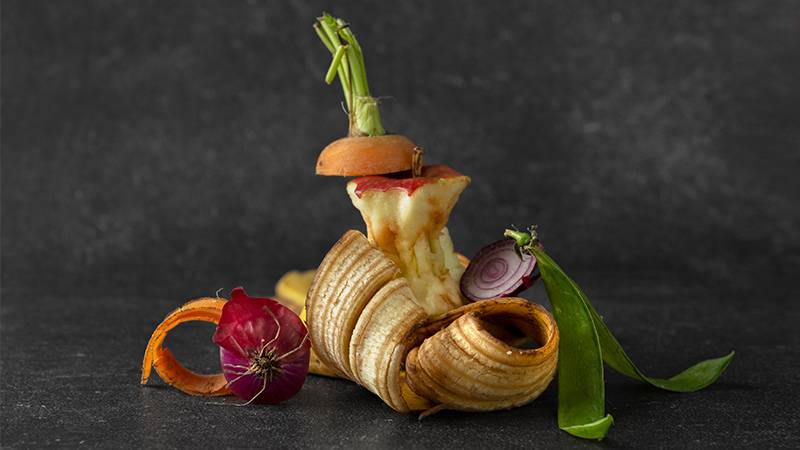
Adding Brown Material and Aeration
Adding brown material, such as leaves or cardboard, to the compost pile aids in aeration and water retention, promoting healthy composting. Turning the compost pile at regular intervals of two to four weeks enhances aeration and facilitates the composting process.
Incorporating brown material into your apartment compost bin when composting onions is crucial for achieving the right balance of greens and browns, ensuring a healthy compost pile that decomposes effectively and provides valuable nutrients to your garden.
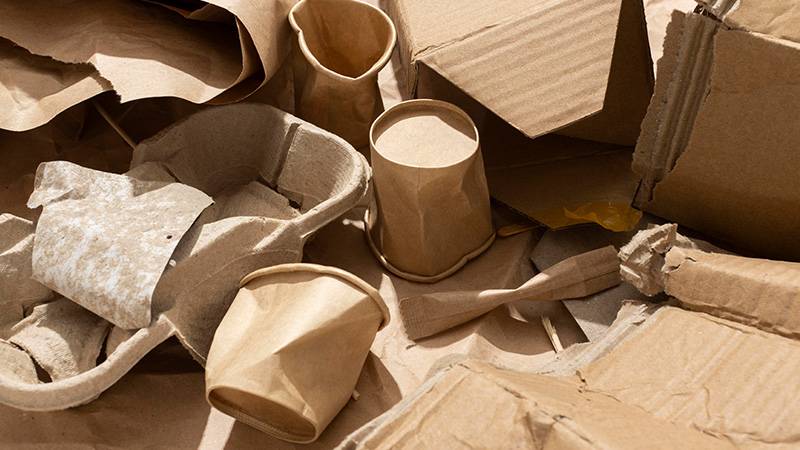
Types of Onions and Their Compost Suitability
Different types of onions have varying compostability.
- Raw onions can be composted.
- Moldy onions are generally safe to compost.
- Cooked onions should be avoided due to oils.
- Diseased onions should not be composted.
Understanding the suitability of each type of onion for composting is essential for maintaining a healthy compost pile and avoiding issues that could potentially harm your garden.
Raw Onions
Raw onions can be composted with proper preparation and balance. All types of onions, including whole onions and:
- yellow
- red
- white
- shallots
- sweet onions
- scallions
Moldy Onions
Moldy onions can be composted, but caution should be taken to prevent mold spread, such as onion mildew, which can be detrimental to other plants in the compost. To ensure the prevention of mold spread, it is important to ensure the compost pile is adequately aerated and to avoid adding excessive moisture.
By carefully managing the compost pile’s moisture and aeration, you can safely compost moldy onions without negatively impacting the rest of your compost.
Cooked Onions
Cooked onions may contain oils that attract pests and should be avoided in compost. These oils can draw in pests and impede the composting of other materials.
Instead of composting cooked onions, consider disposing of them through other means to ensure that your compost pile remains healthy and pest-free.
Diseased Onions
Diseased onions can spread disease and should not be added to compost piles. The disease could be propagated throughout the compost, potentially infecting plants and causing harm to your garden.
Instead, it is recommended to dispose of diseased onions in an alternative manner. By avoiding the inclusion of diseased onions in your compost pile, you can maintain a healthy composting environment that supports the growth and well-being of your garden’s plants.
Vermicomposting and Onions: What You Need to Know
Vermicomposting onions requires special considerations to protect worms from acidity and ensure a healthy composting environment.
Worms can be harmed by onion acidity, so onions should be added in limited quantities to composting systems. This will protect the worms and maintain a thriving compost environment.
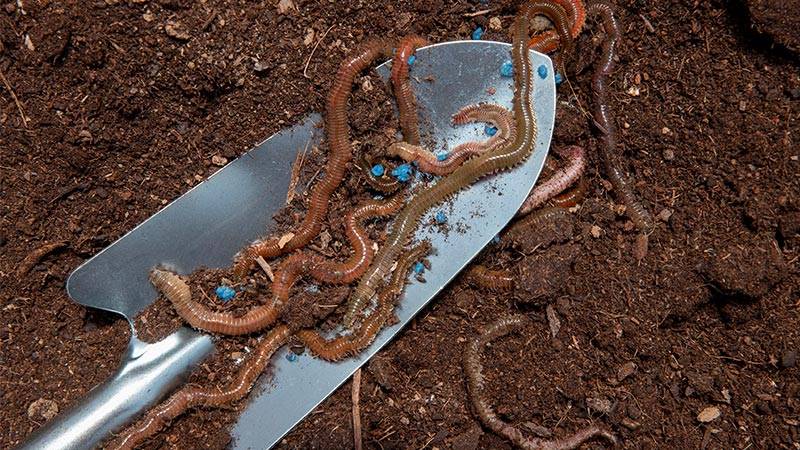
Worm Safety and Onion Acidity
Onion acidity can have detrimental effects on worms, therefore it is recommended to add onions in small amounts to composting systems. Chopping onions into smaller pieces and combining them with other food waste can help protect worms from the harmful effects of onion acidity.
By carefully managing the quantity of onions added to composting systems, you can ensure the safety of your worms and maintain a healthy composting environment for your garden.
Limited Quantities and Worm Flow Holes
Worm flow holes allow worms to move away from acidic onions, ensuring their safety and effective composting. In limited quantities, composting is recommended to begin with small amounts of scraps and gradually increase the levels of waste as the worms consume it.
By utilizing worm flow holes and practicing limited quantities of composting, you can protect your worms from the harmful effects of onion acidity while still benefiting from the valuable nutrients that onions contribute to your compost pile.
Benefits of Onion Compost for Your Garden
Onion compost offers numerous benefits for your garden, including enhanced soil quality, increased yields, and healthier plants. By incorporating onion compost into your garden, you can improve the overall health and vitality of your plants, resulting in a thriving garden that you can be proud of.
Soil Enhancement
Soil enhancement is the process of improving the quality of soil by adding organic matter. Composting onions can contribute to soil enhancement by introducing organic matter and increasing the nutrient content of the soil. This improved soil quality enables the soil to retain moisture and nutrients more effectively, allowing plants to grow and flourish more successfully.
Increased Yields and Healthier Plants
Improved soil quality from onion compost leads to increased yields and healthier plants. Composting onions and incorporating the compost into your garden can supply essential nutrients, like nitrogen, phosphorus, and potassium, to the soil, which can then be used to promote healthy plant growth.
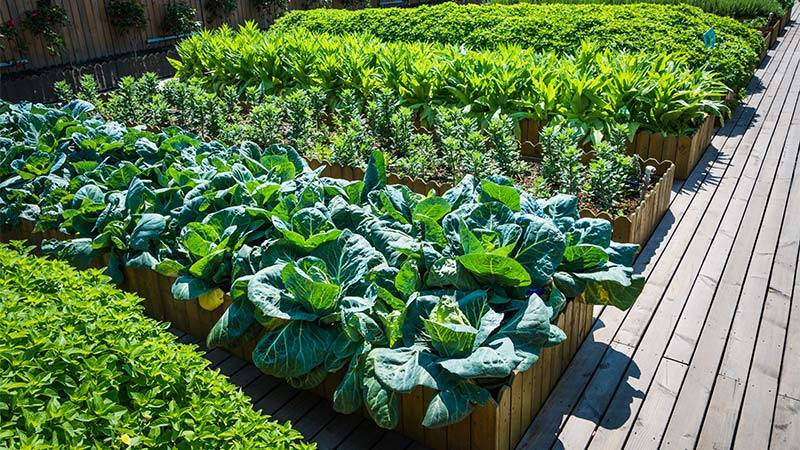
Frequently Asked Questions (FAQ)
Yes, you can compost onions in a worm bin, but it is recommended to add them in limited quantities to protect the worms from their acidic properties.
Chop onions into smaller pieces to prevent sprouting and speed up decomposition for successful composting.
Final Thoughts
Composting onions can be a valuable addition to your garden’s compost pile, providing numerous benefits such as enhanced soil quality, increased yields, and healthier plants. With proper preparation and balance, onions can be successfully composted and contribute to a thriving, sustainable garden.
So, why not give it a try and revel in the rewards that onion compost can bring to your garden?
